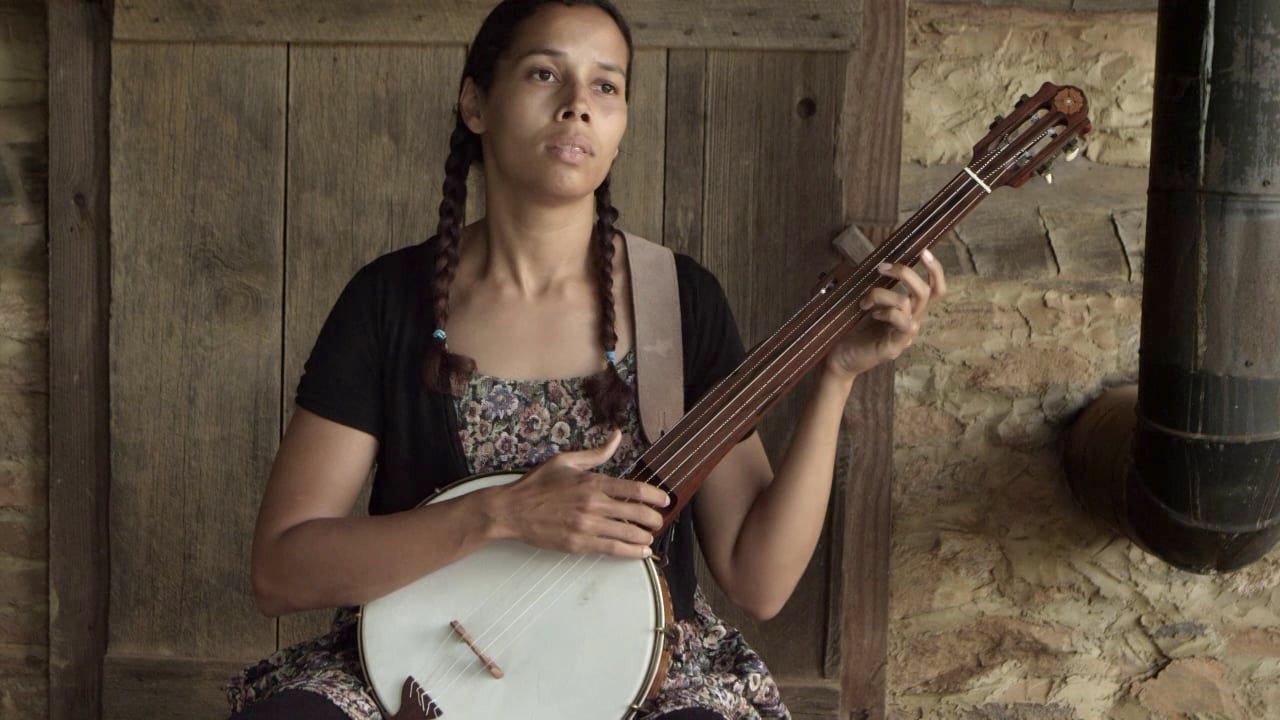
Each year on the 1st of February, Black History Month begins in the United States. A month dedicated to African-American history and the African diaspora. This February, PAM revisits a few moments of its history with emblematic songs.
It is rarely mentioned: last year’s screenings of Black Panther, the first North-American blockbuster featuring Black superheroes, was free to watch in 250 cinemas across the United States, as a starting event for the 2019 edition of the Black History Month, a time dedicated to the study and the value of Black history in the United States.
Whilst the initiative has already been exported to the United Kingdom and Canada, it is not everybody’s cup of tea in the United States. Some criticize the event for becoming a commercial lever for brands that capitalize on the event, while others refuse to reduce it to a single month because “the history of Blacks is the whole of American History”, as actor Morgan Freeman puts it. The writer James Baldwin even proposed a “White History Week” because for him “the truth of this country is buried in the myths that Whites have about themselves”.
In the United States, Black History Month remains an institution. It was established in 1976 to celebrate the country’s bicentennial and to ignite deeper discussions on the role that Black people have played in the history of the United States. Black History Month originated from Negro History Week, a special week conceived by Carter Godwin Woodson in 1926. The aim of the young graduate from Howard University in Washington was to make African-American history known and recognized, at the time excluded from the nation’s historic narrative.
Woodson had chosen symbolically to celebrate Black culture on the second week of February due to it coinciding with Abraham Lincoln’s birthday (the president who formally abolished slavery in 1865). February was also the month former slave, writer and hero Frederick Douglass was born. Indeed, slaves did not know their real date of birth.
One song for one chapter in the “Black USstory” Month
« Julie » by Rhiannon Giddens (ex Chocolate Drops)
Singer and violinist Rhiannon Giddens founded her first group Chocolate Drops to shed light on certain silences in the history of slavery. With Leyla McCalla, she examined the role of slaves and their descendants through country music songs, a genre that history today associates with White American culture. With their banjos, chants and violins, the Chocolate Drops drew from the national archives and libraries, the warm and vivid memories of the South’s elderly constituency, and field recordings from the beginning of the century, to reinterpret the musical past of slavery – often just reduced to the “plantation blues”.
Rhiannon Giddens was born in North Carolina and still resides there, where up until a few decades ago, each Sunday, people prayed at church before putting on their White Ku Klux Klan hoods. Today, with her banjo, her violin and her voice as strong and clear as her own struggles, she campaigns for African-Americans to be included in the official history of country music, a popular genre reputed to be directed at a largely White audience, regaling whiskey-infused tales of love. Since her duet with (White) country star Eric Church, she’s become a lot more famous in the United States, especially with her feature in Nashville, a now cult series that illustrates the glamour, haps and mishaps of the country scene – more the redneck way of life than anything Afro-banjo-oriented.
Despite her success, Rhiannon Giddens has not given up on what has motivated her career to this point: providing history lessons through music!
“There are whole chapters that are missing from our history books,” said the singer, shortly after her second solo album Freedom Highway was released in 2017. “My job is to keep asking questions. What I am doing is not political in the sense that I am not talking about new laws or politics, but I am talking about the outcome of politics. I know that there are people in power who are trying to mold an image of America that only they like, with all this nostalgia for the 1950s. I will not let anyone say that this country is not good, and that it must be made ‘great again’. So it’s my job to use the notoriety I have to reveal History. It is important because we will never go beyond what we are living today if we do not take into account the past, because everything is linked…”
In her second solo album, Rhiannon speaks for and tells the personal trajectories of the invisible ones – or rather those whose history was silenced: the slaves; those who died during the struggles of the civil rights movements; and innocent young people, like Trayvon Martin whose life was taken by police gunfire.
“At The Purchaser’s option” quickly became a hit in the United States (with millions of plays). This remarkably arranged folk song speaks of the dilemma of a slave woman who became pregnant after being raped. What should she do with her baby? In the West Indies, the slave women responded to these tragic situations with this cry: “Manjé tè pa fè yich pou lesclavaj” – meaning “Eat the soil, don’t make babies for slavery!” An allusion to the belief that eating soil instigated abortion.

Of all these personal stories that tell the great History, the song “Julie” is undoubtedly the most chilling masterpiece. Rhiannon imagines a dialogue between a servant and her owner in her Southern plantation whilst the Union army is on its way to free the slaves. An episode rarely mentioned in music since the American Civil War would end in the abolition of slavery, but the liberation was gradual.
Julie, oh Julie
Won’t you run?
‘Cause I see down yonder, the soldiers have come
Julie, oh Julie
Can’t you see?
Them devils have come to take you far from me
Julie, oh Julie
Don’t leave here
Leave us, who love you, and all you hold dear
Slowly, the song “Julie” reveals that the love that the White mistress professes to her maid is fatally compromised: she sold Julie’s own children!
“The mistress of the plantation does not understand that Julie wants to leave,” explains Rhiannon. “She asks Julie to hide her gold cassette and to lie to the soldiers by saying that it is hers, so that they do not confiscate it. Julie replies that it would not be a lie, and that ultimately this money is indeed her own since it comes from the sale of her own children. Everything the plantation owns comes from slaves: whether it comes from the sale of human beings, from the work in the cotton fields or in the house. And this song explains that, when people have a choice, they prefer Freedom.”
Mistress, oh mistress
Don’t you cry
The price of stayin’ here is too high
Mistress, oh mistress
I wish you well
But in leavin’ here, I’m leavin’ hell



